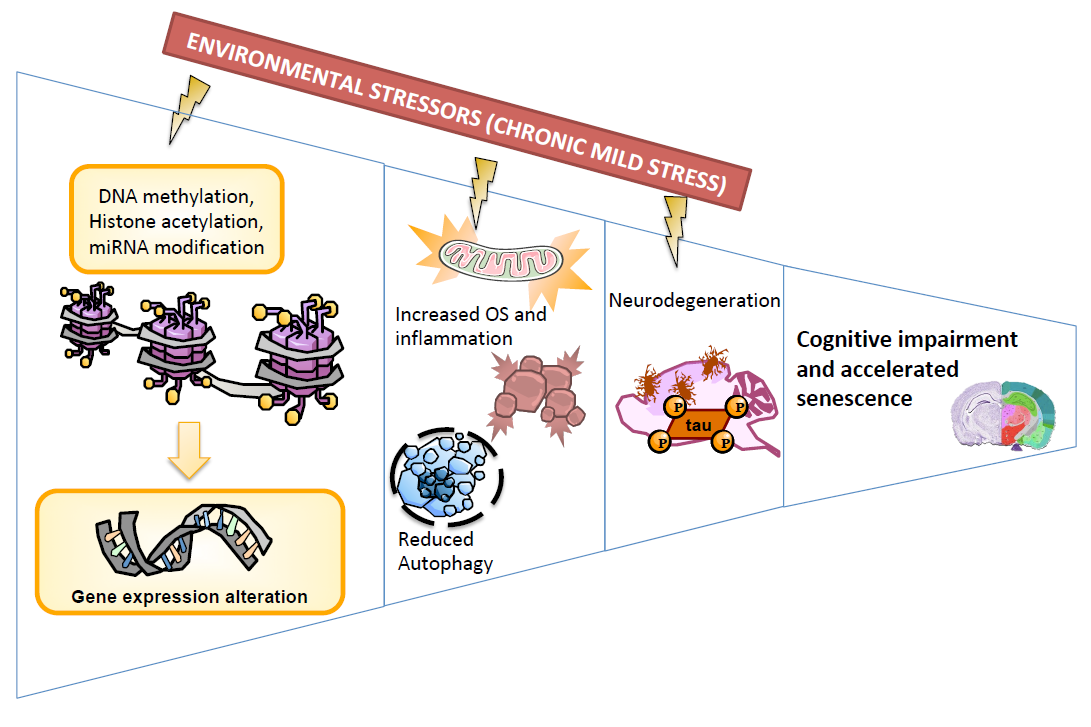Cognitive and behavioural disturbances are growing public healthcare issue for the modern society, as stressful lifestyle is becoming more and more common. Besides, several pieces of evidence state that environment is crucial in the development of several diseases as well as compromising healthy aging. Therefore, it is important to study the effects of stress on cognition and its relationship with aging. To address these queries, Chronic Mild Stress (CMS) paradigm was used in the senescence-accelerated mouse prone 8 (SAMP8) and resistant 1 (SAMR1). On one hand, we determined the changes produced in the three main epigenetic marks after 4 weeks of CMS treatment, such as a reduction in histone posttranslational modifications and DNA methylation, and up-regulation or down-regulation of several miRNA involved in different cellular processes in mice. In addition, CMS treatment induced reactive oxygen species (ROS) accumulation and loss of antioxidant defence mechanisms, as well as inflammatory signalling activation through NF-κB pathway and astrogliosis markers, like Gfap. Remarkably, CMS altered mTORC1 signalling in both strains, decreasing autophagy only in SAMR1 mice. We found a decrease in glycogen synthase kinase 3 β (GSK-3β) inactivation, hyperphosphorylation of Tau and an increase in sAPPβ protein levels in mice under CMS. Moreover, reduction in the non-amyloidogenic secretase ADAM10 protein levels was found in SAMR1 CMS group. Consequently, detrimental effects on behaviour and cognitive performance were detected in CMS treated mice, affecting mainly SAMR1 mice, promoting a turning to SAMP8 phenotype. In conclusion, CMS is a feasible intervention to understand the influence of stress on epigenetic mechanisms underlying cognition and accelerating senescence.

